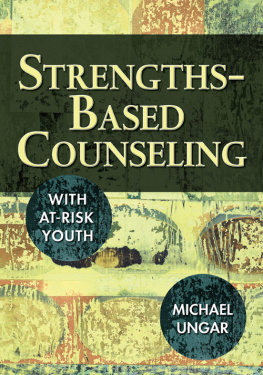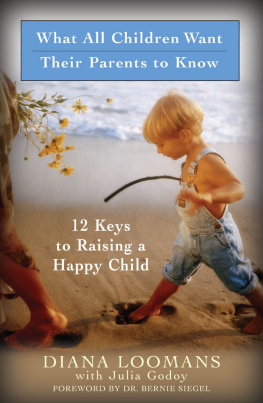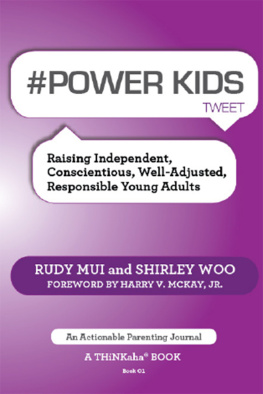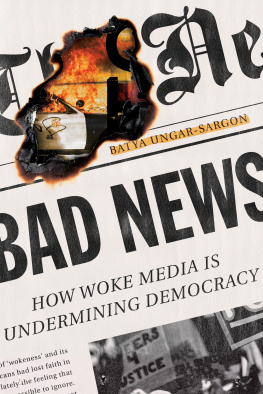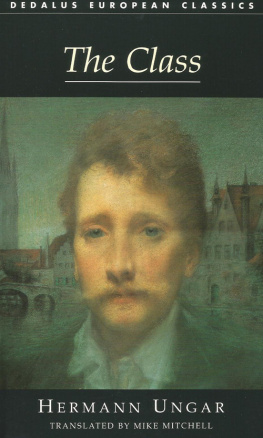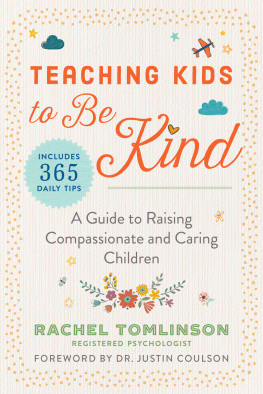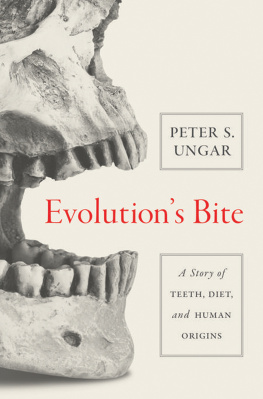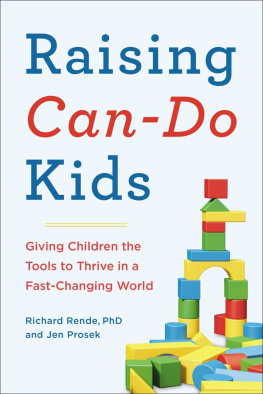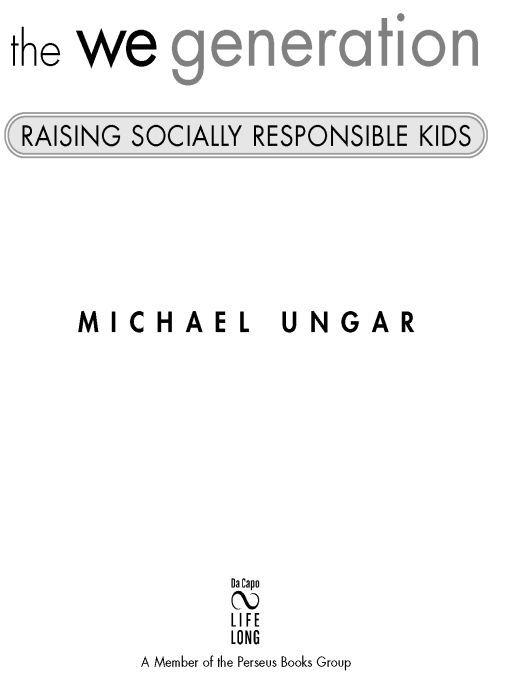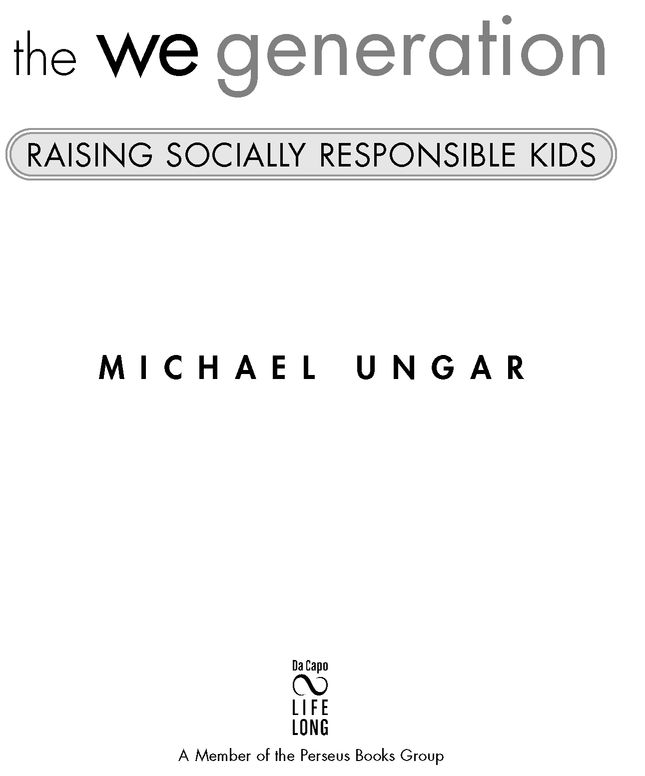Table of Contents
PRAISE FOR
Too Safe for Their Own Good: How Risk and Responsibility Help Teens Thrive
At a time of escalating anxiety about teenagers, Too Safe for TheirOwn Good is the wake-up call weve been waiting for. Ungar not only shows why too much safety and not enough risk is a bad thing for adolescents, but he also gives practical tips for finding the right balance. Written with both authority and a light touch, this is required reading for parents, educators and anyone else who cares about our teens.
Carl Honor, author ofIn Praise of Slow and Under Pressure
Too Safe for Their Own Good offers us fresh, powerful and deeply relevant ideas about the developmental needs of teenagers. Ungars thought-provoking book is both wise and practical. All of us parents, therapists and educators who work with adolescents will benefit from his ideas on what teenagers require for optimal growth. This is a paradigm-shifting book.
Mary Pipher, Ph.D., author ofReviving Ophelia
Michael Ungar clearly demonstrates that risk and responsibility are meat and potatoes for the teenage soul; and he delivers his message to parents with compassion and the hard-earned wisdom of a veteran practitioner.
Chris Mercogliano, author ofIn Defense of Childhood: Protecting Kids Inner Wildness
Too Safe for Their Own Good is a terrific book. It offers parents such a different and smart view of raising teens that every parent should read it.
Evan Imber-Black, Ph.D., author ofThe Secret Life ofFamiliesand director of the Center for Families andHealth, Ackerman Institute for the Family
Michael Ungar has written an exciting, timely, and important book, one that significantly advances understanding of the bases of resilience and health among diverse children around the globe. He provides an innovative and insightful conception of the central role that both risk and responsibility play in enabling young people to thrive and to become adults who are ready to contribute to families, communities, and civil society. The vision and voice in this book compellingly illustrate why the scholarship of Professor Ungar is regarded internationally as a vital resource for enhancing science, policies, and programs fostering well-being among young people everywhere.
Richard Lerner, Ph.D., author ofThe Good T
Author, social worker and family therapist Michael Ungars experience shows us the unintentional harm that can come from good intentions.... Ungar helps us understand that over-parenting and trying to reduce the risk of physical harm to zero leads to unintentional side effects.... Lets take off the bubble wrap and let our kids breathe.
Silken Laumann, Olympian and author ofRight to Play
This book is a must-read for all parents who worry about their childrens safety and wellbeing. Michael Ungar, an internationally respected expert on raising resilient youth, provides valuable information and vivid case illustrations in this practical resource. In todays hyper-stressed and precarious world, families more than ever need his research-informed wisdom and guidelines to help their children avoid harmful risks and yet actively engage life challenges to build resilience and encourage positive growth.
Froma Walsh, Ph.D., author ofStrengthening Family Resilience
This book will be of great interest to parents and practitioners. Especially useful is the guidance Ungar provides about how to empathize and understand the function of risky behavior on the road to helping children grow and thrive. The title emphasizes a central message of the book, i.e., Do not protect children from opportunities to engage in challenging experiences, but the scope of the book is much broader, addressing many important questions faced by todays youth and their families.
Barbara Friesen, Director, Research andTraining Center on Family Support andChildrens Mental Health, Portland State University
With Too Safe for Their Own Good, Michael Ungar is likely to touch the parent of any teenager. He illustrates the positives of what many see as only negative: taking a risk. What child learned to walk without daring to take that first step? What teen learned to drive without turning the key for the first time? Risk is essential for children to develop, and Ungar kindly instructs parents how to help their children discover the right balance between taking risks for growth and taking risks to the point of harm. This book is a must-read for parents worried about their risk-taking youth.
David C. Schwebel, Ph.D., Associate Professor and ViceChair, Department of Psychology; Director, UAB YouthSafety Lab, University of Alabama at Birmingham
If you want to be miserable, think about yourself.
If you want to be happy, think of others.
SAKYONG MIPHAM RINPOCHE
AUTHORS NOTE
The Children and Their Families
In order to protect the privacy of all the individuals with whom I have had the privilege to work, the stories I share in this book are a blend of both real, but disguised, and imagined details and are based on the lived experience of the many young people and their families that I have met through my research and clinical practice. The youth and their families in these pages are substitutes for, or composites of, individuals whose identities must, of course, remain confidential. None of the people portrayed actually exist as I describe them. If some readers think they recognize someone in these pages, the resemblance is purely coincidental. Perhaps, if the stories sound familiar, it is because throughout my career in a number of communities, big and small, I have met hundreds of young people and families with much in common.
PREFACE
I started writing this book on the day the principal of our local elementary school told me about a conversation hed had with a parent of one of his eleven-year-old students. Driving home after work, hed passed the boy, who was playing road hockey with his friends. When the principal waved hello, the boy shouted back, Fyou! and then, with a big smirk, went back to his game. The next morning, with a defiant boy in his office, the principal phoned the boys mother. He was astounded when she told him, You have no right to discipline my son. He was off school property and it was after school hours. You have no say over what he does. Ill decide what to do with him, not you.
The principal stammered, I see, and hung up. He still gave the student a detention, but he wondered later what would become of such a boy.
I wasnt that surprised by the mothers response. Ive seen fathers at my childrens soccer games yell insults at thirteen-year-olds on opposing teams. Ive seen parents at the university where I teach hire lawyers to defend their sons and daughters who have been caught plagiarizing. Ive seen a mother of a three-year-old complain angrily to a day-care worker that another three-year-old was bullying her child by not getting off the playground swing quickly enough.
While parents dont consciously raise their children to be self-centered, there are subtle and not-so-subtle things we do that teach our children to think about themselves (me) first, and about others and their own connection to those others (we) second. We can decide to consciously steer our children in the direction of more socially responsible behavior. Im convinced their generation has the potential to become far more connected with others and more compassionate than the generation raising them was raised to be (thats us). In the pages that follow, Ill show how to raise children to think


